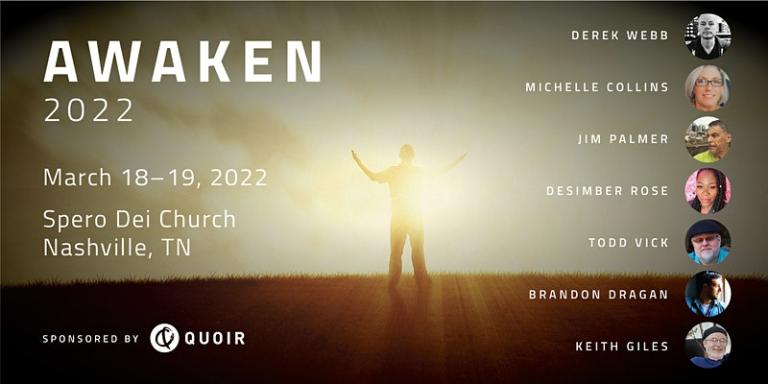
Just a few days ago I receive a private message from someone on Twitter asking me to explain what the Unforgivable Sin was all about and wondering if it was something they may have inadvertently committed.
Unfortunately, this comes up all too often. People read about this, or possibly the other verse in the New Testament that talks about “sin that leads to death” and wonder if they have somehow crossed this imaginary line into the no man’s land where even the love and mercy of Christ cannot – and will not – reach them.
First of all, there is no such thing as a sin that God will not forgive. At least, not according to Jesus, or the Apostles. Jesus forgives everyone, all the time. It’s just what he does. “Your sins are forgiven” are often the first words out of the mouth of Jesus upon meeting a stranger – without anyone ever begging for forgiveness or confessing any of their sins first. Just automatic, instantaneous forgiveness.
The Apostle Paul tells us that “Love keeps no record of wrongs” and since we know that “God is Love” that means God doesn’t keep a record of our wrongs either.
In fact, whenever God speaks about our sins it’s usually to tell us that God doesn’t hold our sins against us, or remember our sins at all.
Now, Jesus does mention that whatever we bind on earth will be bound in heaven, and whatever we loose on earth will be loosed in heaven [see Matt. 16:19]. But the main point we need to take away from this statement is this: God isn’t the one holding anything against anyone. We are.
So, the point seems to be this: “Stop holding things against each other. You’ve been forgiven much, so forgive even more. The measure you use to judge [hold things against] others is the same measure that will be held against you. So…maybe stop playing this sin comparison game.”
But, none of this actually addresses the verses in question, do they? We should probably do that before we wrap things up here, right?
Okay, so here again, it’s our English Translations of the Bible that trip us up and send us in the wrong direction. The New Translation of the NT by Greek Scholar, David Bentley Hart translates Mark 3:29 this way:
“But whoever blasphemes against the Spirit – the Holy One – has no excuse throughout the age, but is answerable for a transgression in the Age” [or perhaps “…is answerable for an age-long transgression.”
Either way, the actual Greek doesn’t say “unforgivable sin” but “has no excuse throughout the age…”
Big difference.
Bottom line: Our English Translations of the Scriptures aren’t always the most reliable sources for what the text actually says. Instead, we’ve inherited translations that leave words out, add words in, or translate phrases with a hard slant to get them to affirm this doctrine or that belief rather than rendering the text accurately.
In this case, the verse in Mark 3:29 never says “unforgivable sin” at all. It says that the one who blasphemes against the Holy Spirit “…has no excuse through the age, but is answerable for a transgression in the Age [to come]…”
Yes, Jesus is saying that those [standing in front of him at the time] who accuse him of speaking from the Spirit of Satan rather than the Spirit of God will end up suffering as a result. But that suffering is more about cause and effect related to the coming End of the Age that Jesus warns his people to avoid. It’s not that this is “unforgivable” at all. It’s simply a statement about the dangerous implications for those who refuse to listen to his words or to follow his teachings to love their enemy, bless those who curse them, and do good to those who mistreat them; i.e. The Romans.
Jesus offered his people a way out of this destruction of their way of life by showing them how violent resistance to the Occupation was going to lead to incredible violence and horrific bloodshed. Instead, Jesus recommended a course of action that involved turning the other cheek, and overcoming evil with love rather than returning violence with more violence.
The other verse in the New Testament that warns us “not to pray for a sin that leads unto death” is found in 1 John 5:16-18 which says this:
“If you see any brother or sister commit a sin that does not lead to death, you should pray and God will give them life. I refer to those whose sin does not lead to death. There is a sin that leads to death. I am not saying that you should pray about that. All wrongdoing is sin, and there is sin that does not lead to death. We know that anyone born of God does not continue to sin; the One who was born of God keeps them safe, and the evil one cannot harm them.”
Okay, so this is a case of people reading into a text more than what is actually there. All that the author wants to communicate here is that some sins don’t lead to death. Things like lying, or lust, or angry thoughts [for example] do not lead someone to die as a result. But some sins – like stealing and murder and rebellion – just might lead you to end up dead.
Why? Because the Romans crucified people for murder, or theft or insurrection, all the time.
It’s really that simple. If you see a brother or sister commit a sin that does not lead to death, you should pray for them. If someone commits murder, God isn’t going to save them from execution. That’s just reality. Some sins incur the death penalty. Others do not. This has nothing to do with any quality of sin that God will or won’t sentence you to death for.
Yes, we already know that elsewhere Paul tells us that “the wages of sin is death” [Rom. 6:23], so in one sense all sin bears the fruit of death in our mortal bodies. But, of course, then Paul goes on to say, “But the free gift of God is eternal life.” So, even if we do sin, God has made a way for everyone to receive the free gift of eternal life, no matter what sins they may have committed.
Trust me, Paul and the other Apostles are not trying to undo the radical message and example of forgiveness modeled by Jesus. That’s the last thing any of them would want to do. Jesus offered forgiveness to EVERYONE. All the time.
This means, no one is outside of God’s reach and no one could ever do anything to disqualify themselves from the boundless mercy of God.
Not even you.
So, the next time you worry that you may have accidentally committed this Unpardonable/Unforgivable Sin, just remember: There is no such thing.
And, you know I can’t let another blog post go by without finding an excuse to quote from 2 Cor. 5:19 again:
“For God was in Christ NOT COUNTING OUR SINS AGAINST US, but RECONCILING THE WORLD [that includes you] to Himself.”
Take a deep breath. God is not holding anything against anyone. Because God is love and love keeps no record of wrongs.
Fear, shame and guilt are the tools of religion. They have nothing to do with Christ who came to heal, reconcile and restore us all.
You are forgiven. You are loved. You are accepted.
That’s the Good News.
**

Is There Life After Religion?
Meet me in Nashville, March 18-19 for AWAKEN 2022.
Keith Giles is the author of the 7-part best-selling “Jesus Un” book series from Quoir Publishing. His latest -and final book – in this series, Jesus Unarmed: How The Prince Of Peace Disarms Our Violence is available now. Keith is also the host of Second Cup with Keith [a new solo podcast available now on the Ethos Radio App, for Apple and Android and on Spotify; and the Heretic Happy Hour Podcast [along with co-hosts Matthew Distefano, Dr. Katy Valentine, and Derek Day], and the new Imaginary Lines YouTube Channel with poet Darrell Epp. He and his wife, Wendy, currently live in El Paso, TX and work with Peace Catalyst International.

















